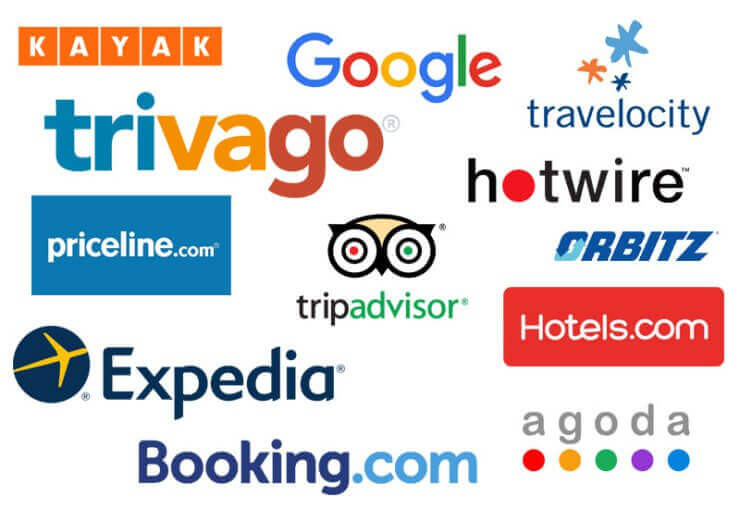
Recently, Google launched a full destination search site for hotel listings in a move that could substantially shake-up online travel—again. The good news? This development has created exciting new opportunities for increased guest acquisitions and conversions.
NB: This is an article from SHR
On a recent webinar, Estella Hale, Chief Product Evangelist for SHR, and Scott Stirling, Product Manager for Triptease, discussed how to make the most of these new opportunities. The following are highlights, so be sure to listen to the entire webinar in the recording above for their complete discussion, plus some exciting Q&A.
What is Metasearch, and Why Does It Matter?
Lots of questions surround metasearch, especially today with so many changes taking place. To define it in simple terms, metasearch is like a huge library of different search providers that link to each other to give a much more intense and deep result to guest search parameters. The meta channels don’t actually sell the hotel rooms, but instead provide the information for the shopper. “There are about 40 or 50 different metasearch sites right now, with the bigger ones like trivago, Kayak, and TripAdvisor, having 50 to 70 percent market share,” said Scott. But other than reach, why is it so important for us to be talking about metasearch now? According to Estella, it has to do with the new relevance of metasearch per Google’s recent updates. “They focus even more now on the user experience, and meeting guests where they are. This matters, because you, as a hotelier, absolutely need to be where your guests are, too.”
So, What’s Really Going on with Google Now?
To answer this question, it’s helpful to walk through some of the changes Google has been making recently to their own metasearch offerings. “For instance, the new user interface is much less cluttered, cleaner, mapped-based, and easier to understand than ever before,” said Estella. “Since more and more travel searches are starting on Google, they’ve made these changes with the goal to keep that traveler on their platform longer.” Put another way, Google is extending the traditional metasearch path to try and hold onto the user for longer instead of passing them along. The fact that metasearch historically has always been “supplier-agnostic” is changing too. As Google gets cleaner and more streamlined in their interface, they now they will be favoring hotels that do the same, delivering the prices and features they are actually advertising for instance, thus ensuring the best user experience for the traveler.
How to Succeed in a Meta Auction
“OTAs are getting 24 percent, or one in four, of their inbound traffic from meta, which is massive,” Scott reported. So, you must be there on meta and have a strong presence. The number one thing you must do? Stay in parity! Google your hotel business listing and see what it says. A surprising number of hotels still don’t have correct addresses, or the right photos and descriptions listed in Google, so that can hinder how Google will “see” your hotel and can affect how often you actually appear. Check all the links as well. Sounds basic, but it is crucial. This mentality of streamlining also seems to apply to channel philosophy for hotels. “What we’re seeing on the CRS side now,” explained Estella, “is that hotels are tired of connecting to hundreds of channels, and have come to realize that they really need to focus on connecting to their guests. That means focusing on only their strongest channels. And obviously, Google is a very important channel to have.” Your best bet for meta auction success? Estella spelled it out this way; appear, compete, and then decide when it comes to bidding.
How can You Optimize Your Conversion Rate?
When we talk about metasearch, we obviously focus on the bidding and price parity side of things, but it’s important to also focus on how you’re converting those customers who come to you via meta too. Scott feels that one very important aspect is breaking down what he calls “data siloes” so you can get more out of what you are collecting by bringing data together. With Google Analytics, for instance, you can look at the finer points of the data being collected. “But examining data on your own can be very intense work-wise, so many hotels find that they benefit from using a data partner to help you to break it all down and truly harness it to your benefit.”
The Big Picture
Estella believes that as you work through all of these methods for improving your metasearch results, it’s important to look at the larger meaning of what is happening now. “It’s such an exciting time for hoteliers because the opportunity is huge for them to appear where their guests are looking, then link them to their hotel website where they can then optimize things for guests’ eyes,” explained Estella. This is where all that data that Scott mentioned before comes in for customization. “That customization is what will really push your conversion rate, coupled with a strong booking engine, and staying in parity,” she added. “When you can meet your guests where they are, and then give them what they need, stronger conversions are likely, as is loyalty and truly owning your guests’ experience.”
Click here to view the webinar




